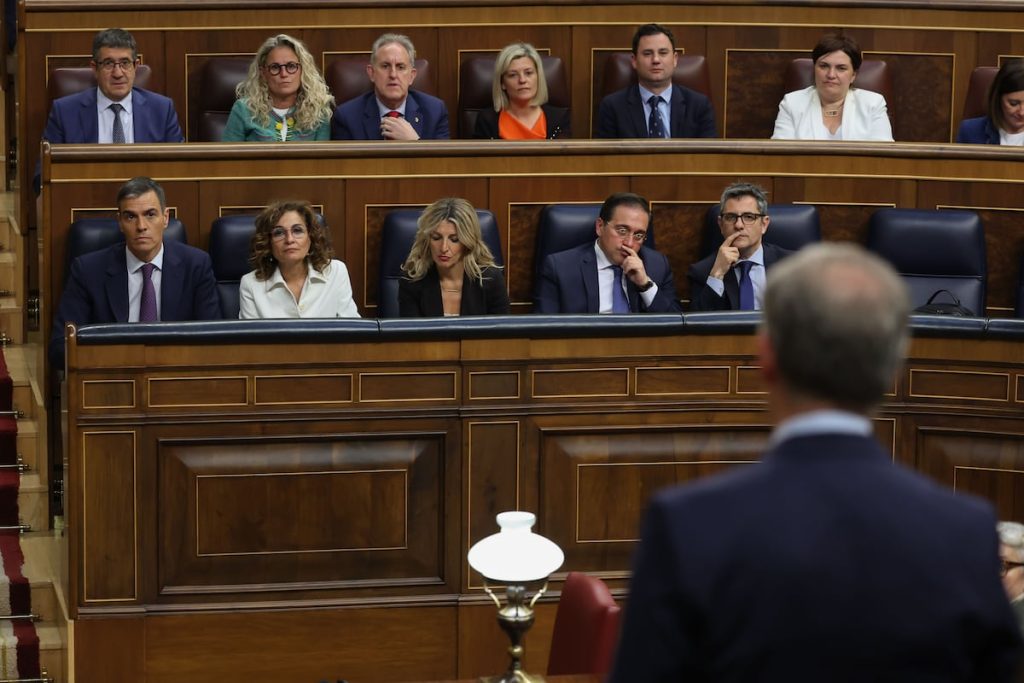The PSOE is going through a difficult time in terms of electoral votes in Congress, which the PP is enjoying, although their intentions are becoming increasingly clear. The failure of the Land Law, demanded by PP local administrations and eventually withdrawn by the Socialists, was just the beginning. The PP managed to deliver nine more blows to government projects in the lower house, with the coalition of PSOE and Sumar splitting in five international policy votes. Most of the Chamber endorsed a resolution by the PP advocating for a two-state solution in the Middle East conflict, with only Vox voting against and Podemos and Junts abstaining. The PP defends that this approach does not necessarily need to be promoted at the moment.
The plenary session of Congress on Thursday saw a very broad majority voting in favor of a PP motion on the deterioration of Spain’s foreign policy due to government actions. This motion reaffirmed the two-state solution to address the historical conflict between Israel and Palestine, a position in line with a previous initiative from 2014. The debate on foreign policy included accusations from the PP regarding the PSOE’s inconsistency and unilateral changes in positions on issues such as Western Sahara, Morocco, Ukraine, and Venezuela. The PP criticized the internal divisions within the government on these matters.
Ten years ago, when Mariano Rajoy was in power, the then Foreign Minister José Manuel García Margallo defended a similar motion in parliament, emphasizing the importance of a two-state solution for the Middle East conflict. The recent debate on Spain’s foreign policy reiterated the PP’s stance on the two-state solution, but with conditions such as respect for human rights, ceasefire, release of hostages by Hamas, and humanitarian aid. The PP, under Feijóo’s leadership, finds itself uncomfortable with the debate on Israel and Palestine due to the societal stance on the issue but believes it is not the right time to push for a resolution.
The recent parliamentary debate highlighted the PP’s victories in multiple votes against the government, as well as the divisions within the PSOE’s coalition on various foreign policy issues. The PP managed to unite Sumar, ERC, Podemos, PNV, and EH Bildu in demanding the reestablishment of Spain’s historic active neutrality on Western Sahara, with only the PSOE opposing. Both the PP and PSOE supported commitments to NATO to invest in Defense up to 2% of GDP by 2030, condemned Russia’s invasion of Ukraine, human rights violations in Latin American dictatorships, and called for free elections in Venezuela. The PSOE and its allies also defeated a symbolic request from the PP to disclose the government’s negotiating position with the UK on Gibraltar.
In conclusion, the recent series of parliamentary votes reflects the ongoing political challenges faced by the PSOE in Congress, with the PP capitalizing on these divisions to secure victories on various policy issues. The debate on Spain’s foreign policy highlighted differences between the two major parties, with the PP advocating for a two-state solution in the Middle East while criticizing the government’s approach to other international conflicts. As the political landscape continues to evolve, it remains to be seen how these divisions will impact future policy decisions and electoral outcomes in Spain.


